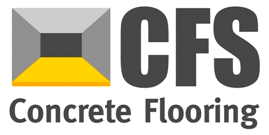Sealing Concrete Floors and Why It’s Important
No matter if your concrete flooring is in your office, domestic kitchen, living area, or commercial space, it needs to be sealed properly. In this article we will be discussing concrete flooring sealers, what they are, how they work, and why they are so important.
The Three Different Types of Sealers
When it comes to sealing concrete floors, there are three main types of sealers: topical, penetrating, and integral. Each sealer does something different, so we thought we’d explain what each of these sealers do:
Topical sealers: these are placed on the surface of your concrete floors and they form an effective protective layer on your floors. Ideal for both indoor and outdoor applications.
Penetrating sealers: these sealers actually penetrate into the concrete itself and form a chemical barrier that helps shield your floors against moisture, helping them last longer.
Integral sealers: these sealers are added to the concrete mix before it even leaves the plant so that your concrete floor will start sealing immediately as it is laid. The integral sealer provides the same benefits as a topical sealer, however the benefit is that it starts sealing immediately.
Why is Sealing Your Concrete Floors So Important?
Sealing your concrete floors is so important and there are so many benefits that highlight the reasons why, so we thought we’d explain some of them here.
Sealing Concrete Inhibits Mould
Nobody wants mouldy floors. However, unfortunately, if your concrete floors are not properly sealed, moisture can creep in and cause mould to grow. If your concrete floors are properly sealed, moisture cannot access your floors and therefore, mould and bacteria growth is inhibited, helping your floors look better for longer!
Sealed Floors are Durable
Increase the durability of your floors by having them properly sealed. A sealed concrete floor will be protected from the elements, preventing cracking, scaling, and other common concrete problems. Sealing your concrete floors prevents damage – no matter how regularly your floors are used. So, if you want to ensure your concrete floors look and stay great for longer, sealing them is definitely a wise choice.
Sealing Extends the Life of Your Floors
As we’ve already hinted to above, sealing your concrete floors helps extend their life cycle and ensure they last significantly longer than they otherwise would. When you seal your concrete floors properly, you can increase the longevity of your floors for around 25-30 years.
Sealant Protects Your Floors
A great sealer can protect your concrete floors from the damage of oil spills, UV rays from the sun, and changes in the weather. If you want your floors to last significantly longer, sealers will help ensure this happens.
Maintain the Floors Colour
Colouring concrete floors is especially popular this year. However, when concrete flooring is exposed to the elements, it can easily become discoloured. So, by sealing your concrete floors, you can help protect and maintain your floors colour, keeping them looking clean and sharp for an extended period of time.
How to Prepare Your Concrete Floor for Sealing
Preparing your concrete flooring for sealing is almost a longer process than sealing the floor itself. However, if you want your floors properly sealed, effective and thorough preparation is extremely important. So, here’s how to prepare your concrete floor for sealing:
- Remove everything from the room that you want to seal.
- Remove the skirting boards from the walls with a putty knife.
- Sweep up any debris that remains on the floor.
- Ventilate the room, opening all the windows.
- Degrease the floors using a degreasing product.
- Scrub any particularly oily areas of the floors with a wire brush to help excess oil emerge from the concrete.
- Rinse the concrete by mopping with a wet mop.
- Allow your floors to thoroughly dry.
- Fill any cracks with quick-drying concrete filler.
After all of these steps, you can start sealing your concrete floors!
How to Seal a Concrete Floor
To seal your concrete floor, pour a small amount of concrete sealer into a painting tray and apply the sealer evenly to your floors using a paint roller. Use a paintbrush to seal around the edges of the room. Always work from the furthest area of the room toward the exit so that you don’t box yourself in!
Give the sealer proper time to dry, around 12 to 24 hours. You can speed the drying process up by using fans or dehumidifiers if you would like your floors to be dried faster than they otherwise would be naturally. Finally, nail the molding and baseboards back into the base of the wall and return all the furnishings to your room. And there you have it, your concrete floors are now beautifully sealed!
How Often Do You Need to Seal Your Concrete Floors?
As you’ve seen, sealing your concrete floor isn’t a time-consuming job and yet it provides so many amazing benefits! By sealing your concrete floors every 2-5 years, as we would recommend, you can ensure your concrete floors remain in good shape for many years, helping you protect against pitting, cracking, and additional damage. If you would like to know more about concrete flooring, please do not hesitate to contact our team at Concrete Flooring Solutions today.
